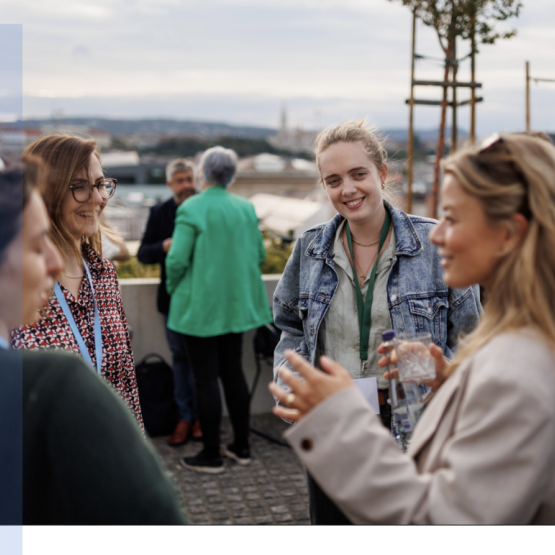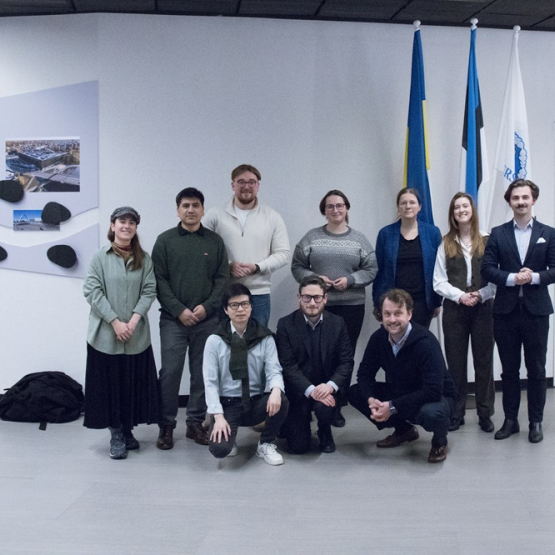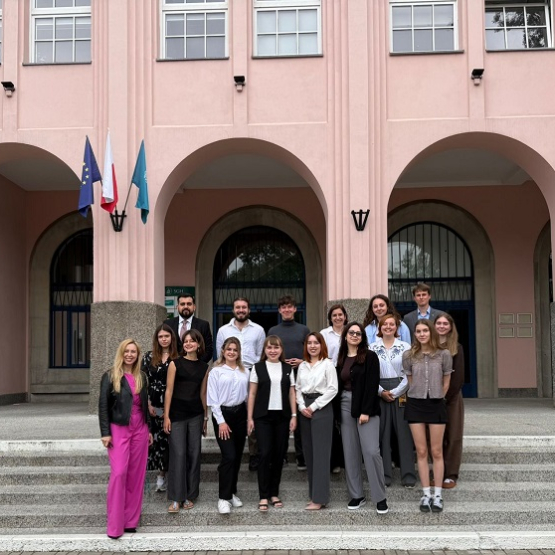An easy guide to CIVICA – The European University of Social Sciences
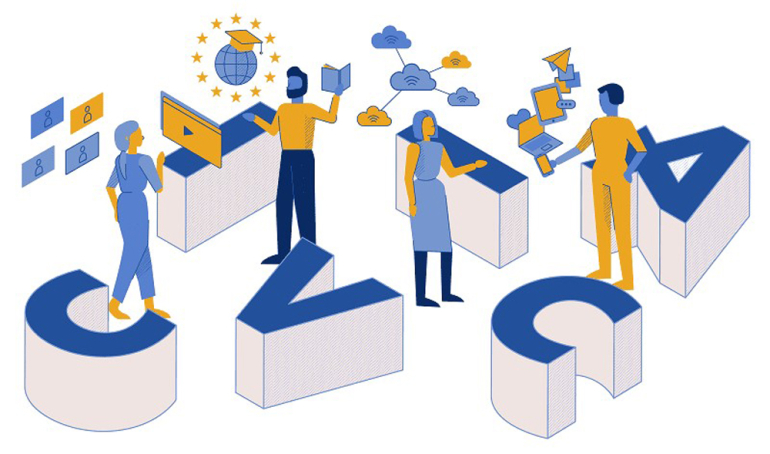
It is highly probable that most members of the SGH academic community have heard of CIVICA through the many events and initiatives organised by both our university and the other member universities of the alliance. One example of such an event is the CIVICA Student Association Forum, which brought together some 150 representatives of student organisations from all 10 partner universities at SGH in November 2023. Nevertheless, I do have the impression that knowledge of CIVICA is still not widespread, which is why I will try to introduce the alliance in a more accessible way.
CIVICA – The European University of Social Sciences is one of the 50 currently active alliances of European Universities created on the European Commission’s initiative within the framework of the Erasmus+ programme. The consortium was launched in 2019 and expanded in 2022 with the addition of SGH and IE University from Spain. The alliance’s area of operation covers all stakeholders (students, researchers, staff and the external environment), offering them various types of opportunities, including, among others, exchanges, joint subjects, didactic programmes, joint projects and others.
In December 2022, we wrote in Gazeta SGH (the Polish language edition of the university’s journal - ed.) about the work package coordinated by SGH (WP9 - CIVICA Student Community and Identity), the objective of which is to ‘cultivate a committed CIVICA student community and develop its joint identity, deeply rooted in European values and legacy ‘1. As part of this package, we are responsible for the CIVICA Ambassadors initiative, the establishment and support of a student and young researcher self-government body – the CIVICA Student and ESR Board2, the creation of a fund for student projects (Student Engagement Fund) and the organisation of sports and cultural events, such as the CIVICA Sport and Culture Festival scheduled for June 2024. The first call for student projects under the Student Engagement Fund is planned for September 2024 already, and the culmination of two calls for student projects will be the organisation of the 2026 CIVICAthon, during which the most interesting projects will be presented.
In addition to our student specific package, students studying at CIVICA universities can benefit from the activities offered in the following packages:
WP3: CIVICA Engage Track – Bachelor education, coordinated by the Stockholm School of Economics, offers primarily a joint study track called CIVICA Engage Track, whereby full-time bachelor students can travel for one semester to one of the seven CIVICA universities that participate in the track alongside SGH. Under the track, students can also take part in a short trip, such as the European Week, which takes place at a different partner university each year.
In 2024 the European Week will be hosted by the London School of Economics and Political Science and will focus on the topic of migration in a changing Europe. In addition to the above, a joint course is being developed. The first subject is planned to be launched in the winter semester 2024/2025 for students of SGH and the Stockholm School of Economics. A short multicampus course (MCC) formula on migration will also be tested as part of European Week 2024.
WP4: CIVICA Europeanship - Master education, which is the responsibility of Bocconi University, offers a multicampus course (MCC) ‘The Future of Europe’, which is offered in the winter semester of the respective academic year. Intensive work is currently underway to launch another MCC – ‘The Road to The Green Transition’, which is planned for the summer semester of 2024/2025 with the participation of SGH academic staff and students. In addition to the MCCs, under WP4 students have the opportunity to participate in joint-courses – SGH is launching two courses in the summer semester 2023/2024:
- AI Challenges to Business and Society delivered jointly by Professor Joanna Żukowska (SGH) and Professor Richard Wahlund (SSE)
- Finance, Trade, and Business for Sustainable Development. The Role of the Private Sector in Sustainable Development delivered jointly by Professor Ewa Osuch-Rak (SGH) and Professor Waya Quiviger (IE).
Furthermore, the package includes the CIVICA Policy Labs, which are intended as a 360-degree learning experience that allows CIVICA master’s students to put in practice the theoretical knowledge acquired during courses, discuss real-life situations and propose suitable solutions, as well as develop soft skills.
The WP5 package coordinated by the European University Institute is dedicated to PhD students and Early-Stage Researchers studying and working at CIVICA universities. Within this package, they can benefit from, among other things:
- PhD Clinic – a forum where early stage researchers can identify and contact faculty members working at CIVICA partner universities whose expertise is relevant to their dissertation topics. The PhD Clinic is available on the my.CIVICA.eu platform,
- CIVICA Teacher Development Programme – a programme designed to enable early career researchers to participate in an inter-institutional teacher development programme, through which they will acquire skills and expertise as university teachers,
- ESR Course Catalogue listing currently available courses, workshops and seminars.
The package additionally includes doctoral conferences, doctoral schools and young researchers also have the opportunity to participate in projects under CIVICA Research.
CIVICA also offers many opportunities for university staff to collaborate within the alliance, providing them with, for example, opportunities for staff exchanges (for teaching and/or training purposes under the Erasmus+ KA 131 programme), participation in joint research projects (under CIVICA Research) or short faculty visits3.
CIVICA has defined four thematic priorities that address many aspects of the alliance’s work, including research activities:
- Democracy in the 21st Century;
- Societies in Transition and Crises of Earth;
- Europe Revisited;
- Data-Driven Technologies in the Social Sciences.
These priorities are also being considered for the activities that will be implemented under WP8: Foresight and Innovation in Social Sciences coordinated by the National School of Political and Administrative Studies (SNSPA). Currently, work is underway to launch the Lifelong Learning and Training Department and the CIVICA Innovation Hub. The mission of the Innovation Hub will be to collect data and conduct research and provide information on the links between social sciences and innovation in education, focusing on four interdisciplinary thematic priorities. The mission of the Lifelong Learning and Training Department, on the other hand, will be to develop a centre of excellence in lifelong learning and training in the social sciences.
CIVICA does, of course, also remember about the external stakeholders of the alliance, organising various activities that are carried out under WP7 (CIVICA Service to Society) and WP10 (CIVICA Global Outreach and Partnerships).
The main objective of the WP7 package, coordinated by Central European University, is to promote diversity, equality and inclusion in the CIVICA community and beyond through, among other things:
- fostering an engaged and diverse CIVICA community for students, faculty and staff through the organisation of a series of workshops on inclusion issues;
- empowering secondary school students from disadvantaged areas and refugees, for whom the CIVICA for ALL platform has been created;
- attracting secondary school students to higher education with a special focus on students from marginalised groups through the organisation of special workshops, launching the development of a
- preparatory programme called ‘CIVICA First Generation preparatory programme’;
- reaching out to the wider public in order to share the experience and knowledge gained from the CIVICA project through the organisation of CIVICA Public Lectures involving all the universities in the alliance.
The main task of the WP10 package (coordinated by IE) is to design, develop and implement global impact activities to position the CIVICA alliance as a global reference in social sciences and the broader scope of higher education. This task is divided into two objectives, under which:
- the global position and competitiveness of European education will be strengthened through CIVICA’s involvement in strategic global activities such as the CIVICA International Forum and international conferences;
- strategic partnerships with global socio-economic actors such as foundations, NGOs, multilateral organisations, think tanks, innovation and entrepreneurship ecosystems will be built in order to support CIVICA’s activities and contribute to the long-term sustainability of the alliance.
It is important to bear in mind the work packages supporting the tasks set out in the packages mentioned above. The WP1 (CIVICA Governance and Management) package is dedicated to the management of the whole alliance, while matters related to exchanges, the work on the CIVICA Certificate and the joint degree, the integration of library resources and the creation of the digital campus are carried out under the WP2 (CIVICA European Inter-University Campus) package. Both these packages are the responsibility of Sciences Po. The coherent communication of the alliance is overseen by the Hertie School of Governance, which is in charge of WP11 (Communication, Dissemination and Impact).
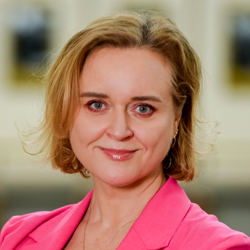
MAŁGORZATA CHROMY, Acting Director of SGH International Centre
1 (https://gazeta.sgh.waw.pl/en/international-cooperation/civica-acting-sg…).
2 (https://www.civica.eu/who-we-are/civica-student-and-esr-board/),
3 In the two calls that have been launched since SGH’s participation in CIVICA, seven employees of our university were given the opportunity to participate in short faculty visits.

